Kenya has the world's toughest ban on single-use plastic bags - you can be fined thousands of dollars or jailed for using them. The ban was introduced in 2017, so is it working?
Get Started for FREE
Sign up with Facebook Sign up with X
I don't have a Facebook or a X account

 Your new post is loading... Your new post is loading...
 Your new post is loading... Your new post is loading...
Nine out of ten pubs do not prevent teenagers from using gaming machines, Gambling Commission says
Graham Watson's insight:
Gambling is clearly in the headlights at the moment - in this case, it's fruit machines in pubs, with the latest research suggesting that the vast majority of pubs don't stop children playing them, despite the fact that this is against the law.
Campaigners argue that a failure to intervene is likely to foster a gambling habit in the young. I wonder if the empirical evidence bears this out.
Nicky Morgan says decision to delay cut in maximum stakes could cost 300 extra lives
Graham Watson's insight:
The delay in introducing the cap on fixed odds betting terminals (FOBTs) has proved to be controversial - with one minister already resigning and the leader of the Treasury Select Committee joining the criticism.
Councils voice concern before timing of maximum stake cut is revealed in budget
Graham Watson's insight:
And with the Budget also comes lobbying - and a reminder that the issue of the maximum stake for fixed odds betting terminals (FOBTs), and the negative externalities that they generate, has yet to be resolved.
Philip Morris says its campaign is "an important next step" in its aim to stop selling cigarettes.
Graham Watson's insight:
The launch of an anti-smoking advert by Philip Morris has attracted a wave of vitriol: it is argued that this is hypocrisy, however, the company itself argue that they are trying to move their business away from selling cigarettes to selling alternatives, and it is this which has cancer charities among others getting upset.
The supermarket chain says the new biodegradable bags will be brought in at 1,400 of its stores.
Graham Watson's insight:
Another supermarket pressing its green credentials: this time, the Co-op are phasing out carrier bags and replacing them with biodegradable alternatives.
Each year, the world generates over 2 billion tonnes of municipal waste. Without urgent action, global waste will increase by 70% from current levels by 2050. Plastics alone take up 12% of global waste, equivalent to the weight of 3.4 million adult blue whales.
Graham Watson's insight:
Two articles on waste in the same day: what a waste!
However, this World Bank clip gives some statistical detail about the extent of the problems generated by the world's waste, and its mismanagement.
One for the cognoscenti!
Tom Watson announces raft of policies designed to tackle addiction ‘epidemic’
Graham Watson's insight:
Labour has announced a couple of initiatives to tackle the issue of problem gambling: a ban on betting on credit cards and now this - a ban on sports advertising during live sport. And having watched some of the Champions League coverage this week, it's easy to understand why they might target this.
However, is it 'good' economics? What are the costs and what are the benefits? Or is it simply a populist position based on relatively little evidence.
UK advertising watchdog says firm broke rules on junk food promotion by using games and videos of toys for toddlers
Graham Watson's insight:
It is clearly the case that obesity generates negative externalities, and thus there's some sort of case for intervening, provided that there's a net welfare gain.
Many argue that one of the reasons for obesity, particulalrly childhood obesity is imperfect information and in this instance, the Advertising Standards Authority has decided that Kinder chocolate have used their website to advertise their products contravening legislation governing the advertising of "high fat, sat or sugar products".
However, free market economists might object to the ruling: can you think why?
Bags for fruit and veg to be replaced by compostable versions and 5p bags to be axed
Graham Watson's insight:
Waitrose acts to cut single use plastic bags, reduce waste and imply that its corporate objectives are more environmentally-friendly.
This might increase costs, at the margin, but also boost profit.
Academics say study shows why industry resists measures to tackle harmful consumption
Graham Watson's insight:
An insight into how vested interests shape policymaking. Academics from the Institute of Alcohol Studies (IAS) and the University of Sheffield’s Alcohol Research Group are arguing that if all drinkers stuck to the government's consumption guidelines, then this would cost the industry £13bn per year.
However, does this imply that the government should legislate to tackle this? You should be able to construct a variety of arguments as to why this isn't necessarily good economics.
Environment secretary plans to phase out ‘house coal’ to curb harmful emissions
Graham Watson's insight:
A quandry for Guardian readers - a clampdown on fuels used in wood burners has highlighted the adverse environmental consequences of some of them. As a result, the most polluting are being phased out.
It's grim up North London...
The company said that restrictions on betting stakes will not have a major impact on its strategy.
Graham Watson's insight:
It's unusual for an oligopoly to break ranks in this way - with Paddy Power saying it can bear a reduction in the maximum stake for fixed odds betting terminals. Just an unusual example, suggesting that oligopolies are sometimes more complicated than meets the eye. |
The rapid rise in the number of child gamblers is "a generational scandal", says a campaigner.
Graham Watson's insight:
There's no let up for the nation's bookmakers, with the latest Gambling Commission report highlighting an alarming growth in the number of child gamblers, and the number of identified problem gamblers quadrupling.
The implication is that the rise in gambling is going to feed through into a generation of problem gamblers who impose ever larger negative externalities on society as a result of their habit.
However, read the article carefully: there's no obvious solution and the final paragraph makes interesting reading: "we found children preferred to gamble in informal environments, out of sight of regulation - private bets between friends or playing cards with their mates for money."
'Twas ever thus, I suspect. And difficult to regulate, I'll wager.
It comes after 70 MPs called on the government to cut the largest wager on FOBTs from April.
Graham Watson's insight:
A victory for common sense, and an indication of how policymaking is complicated by vested interests. No one doubts that there are negative externalities associated with problem gambling encouraged by FOBTs but the current government are also heavily influenced by bookmakers too.
Some 250 major organisations join Coca Cola and H&M promising to stop using single waste plastic.
Graham Watson's insight:
In other news, the number of global organisations committed to ceasing to eradicating single use plastics has risen to 250, including Coca Cola and H&M. 
GCS Business Studies's curator insight,
November 2, 2018 4:56 AM
A move in the right direction, but why are they doing it?
Reducing our use of sand and cement cuts down on CO2 emissions and lessens the impact on the environment.
Graham Watson's insight:
A really interesting piece - admittedly, without much economics - that looks at the environmental implications of our composite demand for concrete. I wasn't aware of the scale of its environmental impact.
Roadmap outlines steps firms must take to reduce waste at every stage of supply chain
Graham Watson's insight:
The government's waste reduction body, Wrap, has come up with a roadmap to encourage UK grocers to reduce their food waste by half.
Consider the facts: the UN estimates global food waste causes about $940bn (£770bn) a year in economic losses. It says a third of the world’s food is wasted while one in nine people remain malnourished. That is a remarkable fact.
Black plastic, which cannot be recycled, to be phased out by end of month
Graham Watson's insight:
Another supermarket moves to enhance its environmentally-friendly credibility. This time Lidl is phasing out black plastic packaging which, apparently, cannot be recycled because the existing technology cannot detect it.
Less black plastic, less waste. Fewer negative externalities.
Nine in ten Europeans worry about plastic’s impact on the environment. But plastic is not the worst offender when compared to other kinds of pollution
Graham Watson's insight:
The Economist looks at the impact of plastic pollution, on marine environments, in particular. But is it as big a problem as people make out: plastic only accounts for 10% of global waste, and other factors may have more of an effect upon the environment. And similarly, whilst the developed world is doing a lot to tackle the issue the five biggest plastic polluters are all Asian, and thus it might be worth focusing our gaze on the problems being created there.
Good economics v rhetorically attractive economics?
Deputy leader says crackdown on betting industry necessary to tackle addiction ‘epidemic’
Graham Watson's insight:
The Deputy Leader of the Labour Party, Tom Watson, has come up with another solution to problem gambling: ban betting with credit cards. That strikes me as reasonable: betting with money that you don't have, to win against odds that are stacked against you, with money that you'll have to pay back at excessive interest rates doesn't strike me as utility maximising in the long-term.
Slashing highest-permitted stake from £100 to £2 could be postponed until 2020
Graham Watson's insight:
It does seem remarkable that, although the prospect of curbing the maximum stake permissible on fixed odds betting terminals (FOBTs) has been trumpeted for a while, it hasn't yet been put into effect.
The reduction from £100 to £2 seems likely to be postponed with the Treasury wary of the impact of this on revenues. However, the Centre for Economic and Business Research (CEBR) argues that this is misleading: yes, the Treasury would lose revenue, but this would be more than offset by other gains.
It is an interesting perspective, and one that recognises the dynamic nature of consumption decisions, and perhaps acknowledges the negative externalities of problem gambling.
Chinese firm’s bikes have been found in waterways, up lampposts, or hidden in sheds
Graham Watson's insight:
The bike-sharing firm Mobike - part of the sharing economy - are thinking of pulling out of Manchester because of vandalism problems. Thus, what seemed like a good way of encouraging cycling, reducing urban air pollution and reducing negative externalities might not have increased consumer welfare or proved a viable business model.
US President Donald Trump has pulled the trigger on a comeback for coal after rolling back legislation which limits the greenhouse gas emissions from its coal-fired power plants.
Graham Watson's insight:
It's clearly been a busy day for Donald Trump - but this is a fascinating aside, highlighting the difference between European and US policy on electricity generation. The Americans are still looking to encourage coal-fired power stations which generate negative externalities.
In contrast, Europe is moving to a coal-free future, not least in the UK, where coal is increasingly obsolete.
An ad on a phone box by a school, and another aired during a Mr Bean cartoon have been criticised.
Graham Watson's insight:
The question of perfect information and regulation raises its head here, with the ASA intervening because two companies broke the rules regarding the advertising of 'junk food'.
But do their adverts represent misinformation or is the regulation unnecessarily harsh and 'bad economics'. It's an interesting one. |






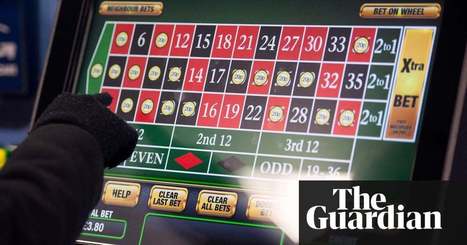
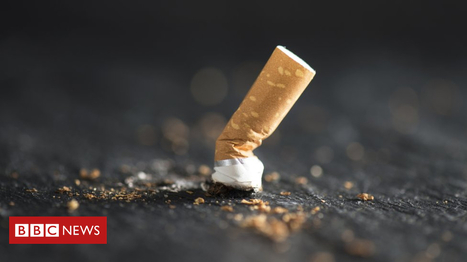
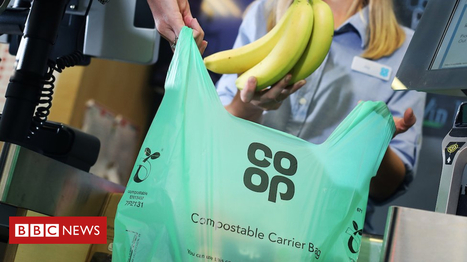


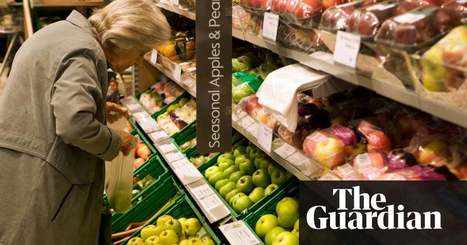
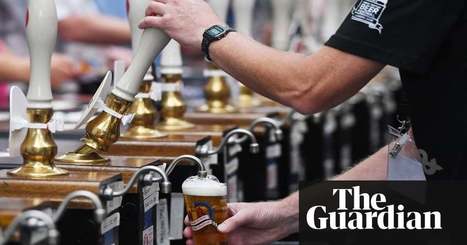

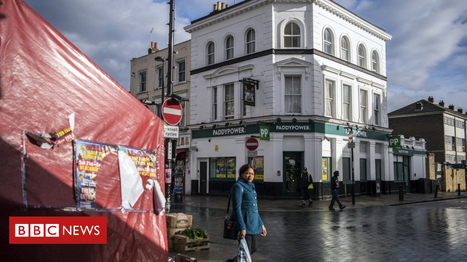
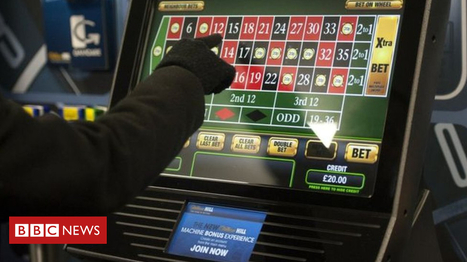



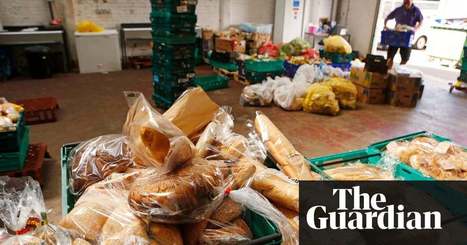
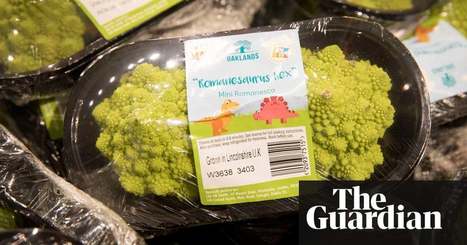
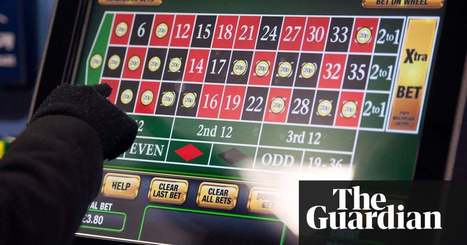
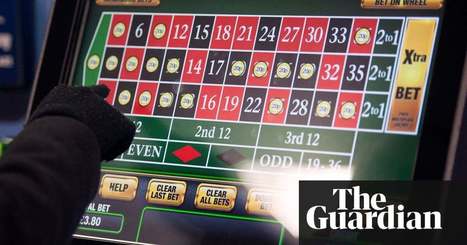
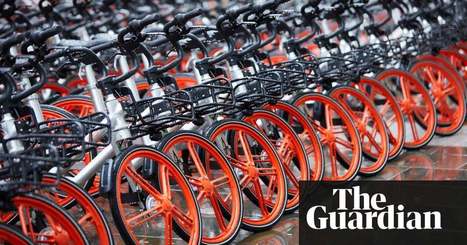
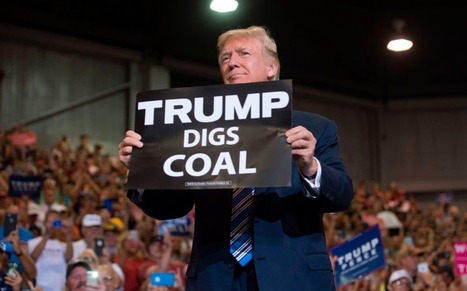






Remarkably, Kenya has the world's most stringent legislation banning plastic bags - but has it worked?This BBC clip investigates, looking at a range of issues, the impact on a variety of stakeholders, from retailers to bag manufacturers, and represents a fantastic insight into the way that different nations have approached this issue.